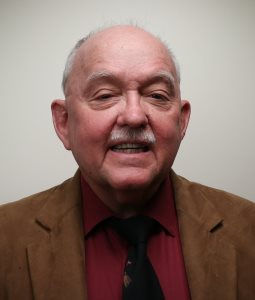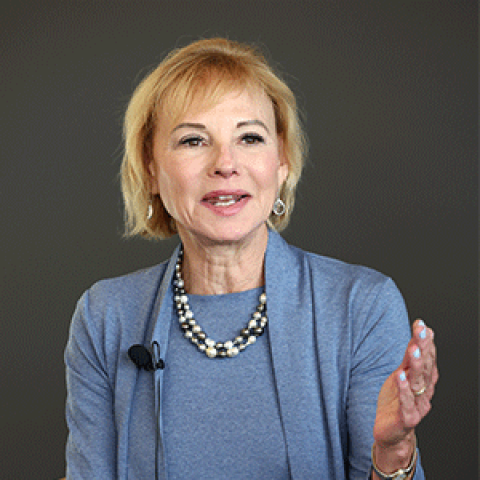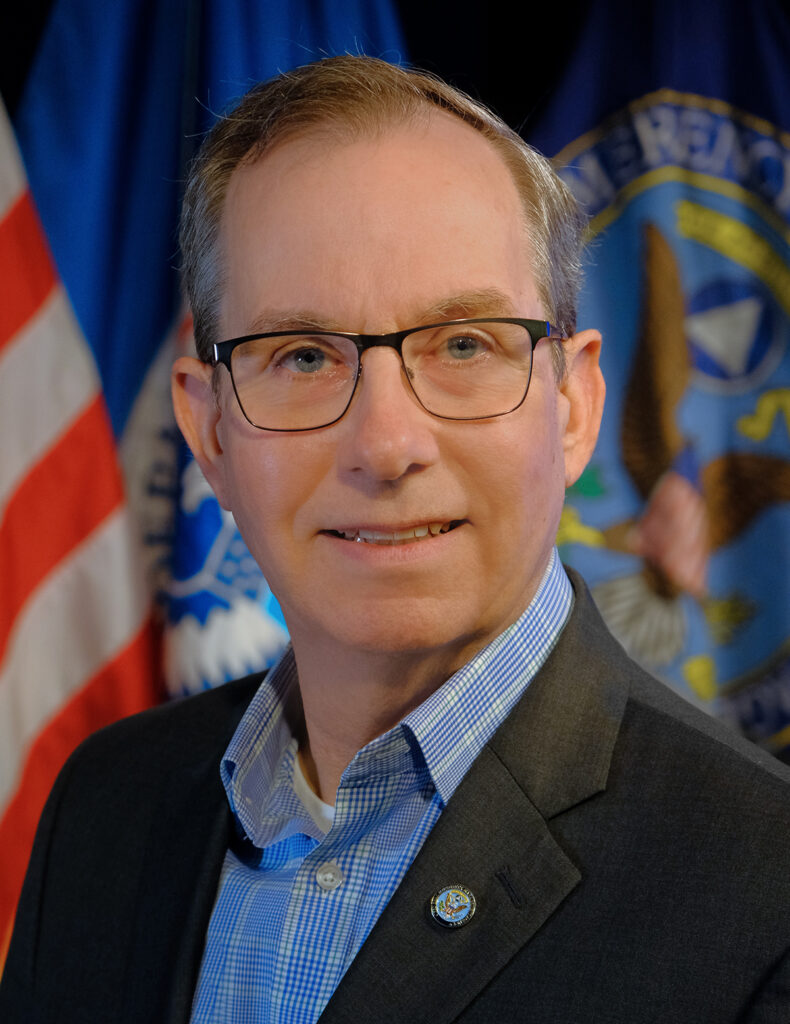Click here to RSVP
The Near Center for Climate Studies (NCCS) was founded in 2020 to serve the students and faculty of The Citadel and citizens of South Carolina by enhancing understanding of climate and its variability, change, and risks. NCCS would not be possible without the vision and extraordinary generosity of Lt Col Jim Near. Near majored in Physics and upon graduation from The Citadel in 1977, served 20 years in the USAF as a meteorologist. He returned to his alma mater in 2014 as an adjunct professor. Near provided The Citadel Foundation (TCF) with a $3.27 million gift to initiate the NCCS. Ever humble and not wanting to receive any recognition for his donation, he specified to TCF that his gift remain completely anonymous until his passing in March 2020.
- NCCS is the only Center in the state that focuses wholly on climate studies.
- NCCS seeks to understand climate variability and change to better prepare important sectors of the economy such as the military, coastal development, ecosystem services, and public health
- NCCS values public-private partnerships for a coordinated approach towards resiliency
- In the context of the mission of The Citadel, NCCS intends to cut through the politicization of climate science for principled decision making
- NCCS is preparing Citadel students to apply their knowledge of climate within internships and careers across many different disciplines
This brand new 740 square foot innovation lab is intended for climate knowledge creation and dissemination. The lights mimic the changes in sunlight during the day and can be operated with window shades in a centralized control panel. In addition to the large central monitor, there are two touch screen monitors where Earth data can be displayed and manipulated with NOAA’s Science on a Sphere Explorer. Finally, there are two projectors, where data cast onto whiteboards can be annotated for real-time weather and climate analysis.
Click here to financially support ongoing climatological studies
Symposium Speakers – September 15, 2023
R. Geoffrey I. Scott

R. Geoffrey I. Scott, is the Clinical Professor and Chair of the Department of Environmental Health Sciences at the Arnold School of Public Health, University of South Carolina and Director of the National Institute of Environmental Health Sciences (NIEHS) Center for Oceans and Human Health and Climate Change Interactions.
Dr. Geoffrey I. Scott received his BS in Biology from Wofford College and his MS and PhD. in Marine Science from the University of South Carolina. Previous research experience includes: (1) Aquatic Toxicologist for the U.S. Environmental Protection Agency, Bears Bluff Field Station from 1976-80, studying the impacts of water chlorination on estuarine organisms and conducting ecological assessments of oil spill impacts around the world, including assessing impacts of the Ixtoc Well Blowout in the Gulf of Mexico; (2) Director of Toxicology Program and the Wide Awake Landing Marine Field Station for Research Planning Institute from 1980-84, conducting research on hazardous waste sites impacts, oil spills and Vibrio cholerae outbreaks in the Gulf of Mexico; (3) Assistant and Associate Tenured Professor at the University of South Carolina’s Arnold School of Public Health from 1984-90 working on assessing the impacts of agricultural pesticides, synthetic fuels and urban NPS runoff on coastal ecosystems; and (4) NOAA/NOS National Centers for Coastal Ocean Science, Center for Coastal Environmental Health and Biomolecular Research (CCEHBR), 1990-2014, conducting research that measured the health of coastal ecosystems and evaluates the impacts of changing landscape ecology from urbanization on ecosystem and human health. Dr. Scott was the Director of NOAA’s CCEHBR from 2001-2014, and formerly the Acting Director for NOAA’s Center for Human Health Risk at the Hollings Marine Laboratory from 2009-2011. Dr. Scott is currently a Clinical Professor and Chair of the Department of Environmental Health Sciences at the Arnold School of Public Health at the University of South Carolina. He is also Director of the NIEHS Center for Oceans and Human Health and Climate Change Interactions housed in the Arnold School of Public Health with Collaborating Universities including the College of Charleston, The Citadel, Baylor University, University of California Irvine, Rutgers University and the University of Maryland. In addition he has also holds faculty appointment in the Marine Biology Program at the College of Charleston and has previously held faculty appointments at other academic Institutions including the Marine Biomedicine Program at the Medical University of South Carolina and Texas Tech University’s Institute for Environmental and Human Health.
Dr. Scott has served on >116 graduate student research committees and has directed the research of > 60 Masters and PhD Students at various institutions where he holds faculty appointments. He has published > 200 peer reviewed scientific publications, has authored/co-authored > 24 national reports and has served on numerous federal (White House, National Academy of Science, US Congress, EPA, NOAA) and state (SC, CA, VA) expert panels and interagency task forces.
Sherri Goodman

Sherri Goodman has a three-decade track record of leading, transforming and driving lasting results in organizations as both a board member and executive in international security, national defense, defense industry, foreign policy, energy, environment, critical infrastructure and scientific research organizations.
Sherri Goodman serves as Vice-Chair of the US Secretary of State’s International Security Advisory Board (ISAB). She is also the Secretary General of the International Military Council on Climate & Security (IMCCS), representing over 40 military and national security organizations addressing the security risks of a changing climate. She is credited with educating a generation of U.S. military and government officials about the nexus between climate change and national security, using her famous coinage, “threat multiplier,” to fundamentally reshape the national discourse on the topic.
She is a Senior Fellow at the Woodrow Wilson International Center’s Polar Institute and Environmental Change & Security Program, as well as a Senior Strategist at the Center for Climate & Security. Sherri serves on the Defense Science Board Task Force on Climate Change & Global Security.
Sherri served as the first Deputy Undersecretary of Defense (Environmental Security), (1993-2001), where she was responsible for environmental, energy, safety and occupational health for the US Department of Defense. Sherri established the first environmental, safety and health performance metrics for the Department, and led its energy, environmental and natural resource conservation programs. Overseeing the President’s plan for revitalizing base closure communities, she ensured that 80% of base closure property became available for transfer and reuse. She led the Secretary’s Arctic Military Environmental Cooperation program which developed a container for storage of spent nuclear fuel for liquid waste from Russian nuclear submarines.
Sherri chairs the Board of the Council on Strategic Risks and chairs the External Advisory Board on Energy and Homeland Security for Sandia National Laboratories. She serves on the Board of the Woods Hole Oceanographic Institution (WHOI), the Climate Council of the US EXIM Bank and on the National Academies’ Advisory Board of the US Global Change Research Program. Sherri is a Board Director of the Atlantic Council and a Life Member of the Council on Foreign Relations. Sherri is a member of the Joint Ocean Commission Leadership Initiative, co chaired by former SECDEF Leon Panetta and former Governor and EPA Administrator Christine Todd Whitmer. Sherri served on the Independent Review Panel for the DOD Quadrennial Defense Review in 2010 co-chaired by former SECDEF Bill Perry and former National Security Advisory Stephen Hadley.
Sherri is the former President and CEO of the Consortium for Ocean Leadership. She served as Senior Vice President and General Counsel of CNA (US Center for Naval Analyses). She is the founder and Executive Director of the CNA Military Advisory Board, whose landmark reports include National Security and the Threat of Climate Change(2007), National Security and the Accelerating Risks of Climate Change (2014), and Advanced Energy and US National Security (2017) and The Role of Water Stress in Instability and Conflict (2017) among others. The film The Age of Consequences in which Sherri is featured, is based on the work of the CNA Military Advisory Board.
Sherri served as the first Deputy Undersecretary of Defense (Environmental Security), (1993-2001), where she was responsible for environmental, energy, safety and occupational health for the US Department of Defense. Sherri established the first environmental, safety and health performance metrics for the Department, and led its energy, environmental and natural resource conservation programs. Overseeing the President’s plan for revitalizing base closure communities, she ensured that 80% of base closure property became available for transfer and reuse. She led the Secretary’s Arctic Military Environmental Cooperation program which developed a container for storage of spent nuclear fuel for liquid waste from Russian nuclear submarines.
Sherri served on the staff of the Senate Armed Services Committee where she was responsible for oversight of the Department of Energy’s nuclear weapons complex, including research and development of nuclear materials and national labs, and environmental cleanup and management. She has practiced law at Goodwin Procter, as both a litigator and environmental attorney, and has worked at RAND and SAIC.
Sherri has received numerous honors and awards, including an Honorary Doctorate from Amherst College in 2018, the Department of Defense Distinguished Service Award in 1998 and 2001, the Gold Medal Award from the National Defense Industrial Organization in 1996, and the Environmental Protection Agency’s Climate Change Award in 2000.
Sherri has written a book, The Neutron Bomb Controversy: A Case Study in Alliance Politics, and authored dozens of reports and articles on a broad range of climate, energy, environmental and national security matters. She is a frequent presenter and lecturer to governments, private and public sector organizations, and academia. In recent years she has spoken at Harvard Kennedy School, MIT, Princeton, Yale, Stanford, University of Chicago, University of Pennsylvania, Middlebury College, Norwich University, University of Idaho, University of Arizona, Virginia Tech, and Georgetown University. She has been an Adjunct Lecturer in International Affairs and Security at the Harvard Kennedy School and an Adjunct Research Fellow at the Kennedy School’s Belfer Center for Science and International Affairs.
Sherri is currently writing Threat Multiplier: How the Military Got Educated on Climate Change. A graduate of Amherst College, she has degrees from Harvard Law School and Harvard Kennedy School.
Lt Col Timothy D. Smith, USAF, (Ret.), ‘80
Chief, Operations Integration Branch, Response Operations Division,
Federal Emergency Management Agency (retired)
Mr. Tim Smith is an Emergency Manager with 42 years of federal service, 28 in uniform with the U.S. Air Force and 14 with the Federal Emergency Management Agency. He entered federal civil service in 2009, initially serving in Disaster Operations Planning, establishing a new Exercise Unit that led the Administrator’s no-notice “Thunderbolt” program; planning and executing over 85 no-notice exercises in two and a half years. He then led FEMA’s Continuity of Operations program. In 2015, Mr. Smith deployed to Kiev, Ukraine as part of a planning team to assist in the country’s response to the 2014 Russian invasion. Mr. Smith also previously served as the Senior Advisor to the Associate Administrator, who oversees FEMA’s Response, Recovery, Logistics and Field Operations Directorates. He stood up the Operations Integration Branch integrating operational capabilities between HQ, 10 FEMA regions and disaster field locations, overseeing the agency’s Operations Cadre, Air Operations Unit and $1.2B in emergency medical and air transport contracts. Mr. Smith was also the Chief, National Response Coordination Branch, leading the agency’s National Response Coordination Center including doctrine, staffing, qualifying, and training and a $4.5M facility modernization. During the COVID 91 pandemic, Mr. Smith filled a variety of roles, including leading the foreign donations effort, leading Community Vaccination Clinics in Philadelphia, PA and Norfolk, VA. These sites administered nearly 500,000 vaccinations in three months. He also led the National Clinical Vaccination Program with contracts providing medical staffing for vaccination and monoclonal antibody treatment nationwide totaling $3.2B.

Mr. Smith is a Certified Emergency Manager (CEM®) by the International Association of Emergency Managers. He is a graduate of the Emergency Management Institute’s Executive Leadership Academy and has received three FEMA Administrator’s Awards – in 2016, 2020, and 2021. Mr. Smith also received the National Voluntary Organizations Active in Disasters (VOAD) Partner of the Year in 2020. In 2021, he was awarded a Bronze Star by the Virginia National Guard for his service to the Commonwealth during their vaccination campaign. In 2022 Mr. Smith was recognized by the Philadelphia Federal Executive Board with an Excellence in Government Gold Medal for his work leading the Philadelphia Vaccination Center and the DHS Chief Procurement Officer’s Excellence award for leading FEMA’s emergency contracts during the Pandemic. Mr. Smith is an ICS Instructor, Master Continuity Professional, Master Exercise Professional and HSEEP certified Instructor.
Mr. Smith held dual qualifications under FEMA’s Qualification System (FQS). He was a Resource Support Section Chief in the National Response Coordination Center (NRCC), leading five support groups covering all operations, logistics and Emergency Support Functions (ESFs). Mr. Smith also deployed to the field as a Division Supervisor and Operations Branch Director, including for Hurricanes Irene, Sandy and Ian and historic flooding in Louisiana and South Carolina. He has participated in over 60 Presidentially declared disaster activations including hurricanes, wildfires, winter storms, flooding, tornadoes, earthquakes, volcanic eruptions, and Haiti support.
Prior to joining FEMA, he completed a 28-year career in the United States Air Force. His varied assignments included operational, staff and command tours in both ground and flying units. Mr. Smith was a Master Air Battle Manager and flight examiner with over 3,300 flight hours in both the AWACS and JSTARS aircraft. He deployed as a Mission Crew Commander on five combat tours for Operations Enduring Freedom and Iraqi Freedom in 2003-2006, with 120 combat missions and over 1,500 combat flight hours. He additionally served a wartime tour with the United Nations in Croatia and Bosnia-Herzegovina in 1994 and Operations Southern and Northern Watch flying 55 combat support missions in 1992-199
While serving with the Air Force, Mr. Smith responded to a number of disasters, including, as Military On-Scene Commander for the Murrah Federal Building bombing response, managing a shelter for over 1,000 personnel in Mississippi during Hurricane Georges and volunteering with nonprofit organizations during the Hurricane Katrina response in Biloxi, Mississippi. He is a graduate of The Citadel with a Bachelor of Science in Biology and earned a Master of Arts in Biology from Harvard University.

